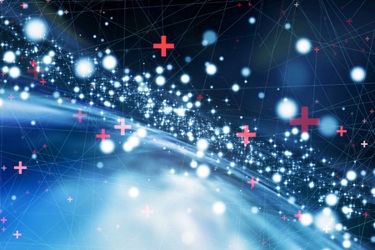6 Reasons To Prioritize IoT In The Water Sector
By Sanjeev Verma

Water, being the most essential resource, is the foremost priority of several consumers and needs to be preserved at all costs. Also, water management is the key issue in the present scenario. The communication technology system for water control often faces interoperability issues due to the lack of monitory support. Such issues directly impact various processes like water consumption, distribution, equipment maintenance, system identification, etc.
IoT is an emerging technology that has laid a perfect example for industries to flourish in extraordinary ways. Smart solutions and innovative techniques have not only boosted the industrial performance but have enabled a complete transformation in the water sector. Moreover, implementing smart solutions within the water sector offers real-time data gathering of water temperature, pressure, levels, bills, and every possible area for monitoring.
IoT is a sensor-enabled technology, which follows advance concepts and sensor functionality to obtain automated results. You can implement IoT with the water business to avail huge profits and benefits along with improved industrial performance. Below are six benefits that would make you prioritize IoT in the water business.
1. Increased revenue generation
IoT comprises defined characteristics like automation, data information, communication data flows, connectivity, smart analytics, and intelligent solutions. The combination of all these characteristics forms an IoT solution that works for industrial improvement. The water industry is adopting smart solutions for a sustainable future. Technology plays an important role in transforming water utilities digitally, which impacts revenue growth in the water sector.
Various IoT solutions like a smart water meter, level monitoring, and smart farming are proposed in the water industry for better conservation practices, improved utilization, and cost-effectiveness. With the help of automated and data-driven solutions, the water authorities can focus on increasing their revenues and reduce unnecessary water wastage. It happens when the sensor-enabled technology captures data from all possible areas and keeps a record of the water levels through a cloud storage platform. An IoT-powered solution is thus effective for adequate water consumption and conservation practices.
2. Improved decision-making
With the use of IoT concepts, water authorities can improve several ways in which water is supplied. For instance, on the distributive pipeline network, they can install a smart meter to detect the leakage areas, thefts, pressure, and temperature of the water. A smart meter comprises sensors that fetch real-time data and stores it on a cloud platform for analysis. It thus enables an improved method of recording water data.
Furthermore, it helps the authorities to generate accurate water bills, leaving less scope for calculation errors. Hence, IoT provides improved decision-making with its real-time monitoring and data-driven approach. Apart from smart water metering, IoT in the water industry also supports level monitoring to help the owners know the exact amount of water in the storage tanks. It helps in maintaining the adequate quantity of water for multiple requirements, which results in improved decision-making as required.
3. Distributed information capture
IoTizing your water business generates large amounts of data including water consumption, distribution, and inventories. This data is collected through sensors and is transmitted on a cloud platform via gateways. This information plays an important role in meeting the industry requirements and improves decision-making. Also, IoT-powered solutions are equipped with advanced algorithms and programming, which use the collected data for better analysis of the industrial performance.
Moreover, you can automate the entire industry premises by installing appropriate sensors and interconnect them with a smart gadget. It helps collect vast information regarding every detail of the assets and allows you to make improvements as required. Adding sensor-enabled technology to industrial equipment like storage tanks or pipeline systems to monitor their real-time activities provides clear and accurate data for analysis. This improves the overall productivity and performance of the industry.
4. Asset efficiency
IoT is a technology that enhances the potential of industrial assets. The water distribution pipelines and storage tanks not only supply and store water, but also ensure its quality and consistency. Different assets have unique potential and IoT as an added source helps enhance the potentiality with its smart management techniques. As technology uses sensor devices and communication protocols, it increases their functional behavior by capturing data in real time. You can effectively use this data to analyze the current behavior of the asset and its uptime or downtime.
The Internet of Things offers a unique aspect to monitor the working of the assets remotely. This enables operators to work efficiently in multiple industrial domains. IoT technology is emerging vastly in the water sector and is encouraging smart water management. Also, it enhances the regular control over the usage and quality of water, which results in improved supply quality. Additionally, installing a smart solution to improve industrial productivity also increases the infrastructural strength and abilities to process in every domain.
5. Intelligent ecosystem
The rapid growth in the population is causing various water issues like water scarcity and quality degradation. Water crises have become one of the most significant risks for mankind, which is currently worsened by climatic changes. Hence, smart water management is crucial. IoT technology is doing its part in offering unique and economic solutions to mitigate water-related issues.
The IoT concept thus works as an ecosystem for the water industry, where the interconnectivity between different assets is as crucial as the independent processes are involved in a water cycle. Great signs of progress have been made at several levels to optimize environmental preservation, resource management, flood prevention, and water consumption. With the use of an IoT-powered solution, you can quickly identify the potential areas — where and how much water is consumed. It helps in developing smart and actionable insights for the industry, allowing the authorities to take smart decisions.
6. Smart water management
Managing water supplies is becoming a critical task when it comes to create a sustainable business and deal with climatic changes. Thus, the water sector is widely adopting IoT to fulfill the requirements of smart water supply and management. The Internet of Things is a disruptive concept that uses smart techniques to improve the water system for your city. It helps you reduce unnecessary water consumption, identifies leakages, and reduces maintenance costs. Also, consumer applications aim to share real-time data for accurate billing and consumption. It is highly beneficial to conserve water at a maximum stretch and include cost savings.
Smart water management thus comprises keeping the entire infrastructure intact and under keen supervision to avoid business loss. You can make better decisions when you are aware of every detail regarding the plant activities. Therefore, IoT technology brings transparency and well-structured management concepts that transform industrial facilities smartly. Also, the technology follows a data-driven approach, which makes it easier to analyze the information and make decisions accordingly.
 Sanjeev Verma is the founder and CEO of Biz4Group, based out of Orlando, FL. He has conceptualized the idea of Biz4 Brand and founded Biz4Group and Biz4Intellia. He has 20+ years of experience in boosting IT-based startups to success. In the past, he has worked on leadership positions with Marriott Vacations, Disney, MasterCard, State Farm, and Oracle. The company headed by him excels in developing, implementing, and monitoring digital solutions ranging from IoT solutions and products, mobile and web development, and digital marketing to full stack development and CMS solutions.
Sanjeev Verma is the founder and CEO of Biz4Group, based out of Orlando, FL. He has conceptualized the idea of Biz4 Brand and founded Biz4Group and Biz4Intellia. He has 20+ years of experience in boosting IT-based startups to success. In the past, he has worked on leadership positions with Marriott Vacations, Disney, MasterCard, State Farm, and Oracle. The company headed by him excels in developing, implementing, and monitoring digital solutions ranging from IoT solutions and products, mobile and web development, and digital marketing to full stack development and CMS solutions.
